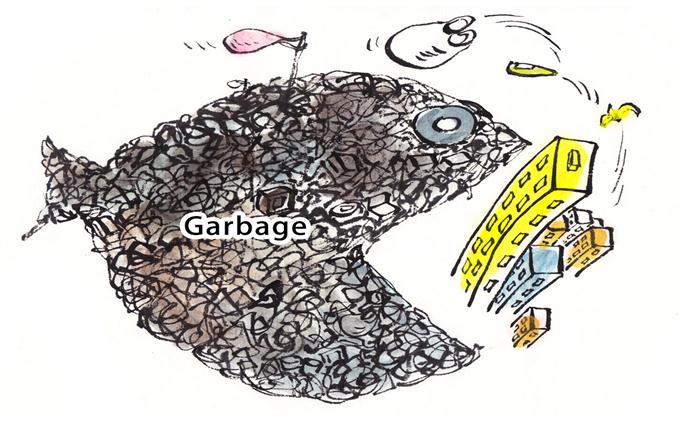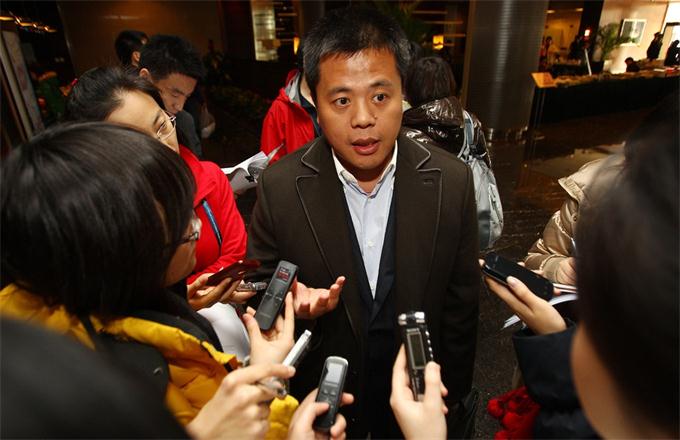Diplomatic balancing act

China continues to pursue a peaceful rise and cooperative relations, but it has to defend its territorial integrity and core interests
In the next five to 10 years, China needs to address domestic concerns and clear any misunderstandings the outside world may have about its peaceful path of development.
One of the imminent diplomatic challenges facing China is derived from its continuing economic rise and its disputed status as a developing country. China has come under pressure from Western countries, and also its neighbors, to assume more responsibilities as a major economic power. They choose to ignore the fact that even though it is the world's second-largest economy, the IMF ranks China's GDP per capita 89th in the world.
The West is encouraging China to play by its rules and assume more liabilities while downplaying how underdeveloped China's central and western regions are. China must withstand this external pressure and keep a firm hold on its status as a developing country. It should fulfill its international responsibilities in accordance with its true capabilities.
China's diplomatic difficulties are also reflected in the ongoing territorial disputes with some of its neighbors, where it is struggling to adjust its stance in tune with domestic sentiment and external concerns. The Chinese public has criticized the government for exercising too much restraint, while external powers have rebuked it for being aggressive and warned Beijing not to ride roughshod over the concerns of the other claimant countries. To the credit of former leader Deng Xiaoping, China's diplomacy has long been guided by the wisdom of working hard and staying low. However, this long-held line is now being questioned amid the escalating territorial disputes.
Indeed, in such a delicate situation, unmodified adherence to that strategy will undoubtedly dissatisfy the Chinese public who are determined to safeguard territorial sovereignty. More importantly, other countries and powers are likely to misinterpret China's restraint as a sign of weakness.
The truth is, the use of force to defend the country's sovereign integrity and core interests does not contradict China's pledge to pursue a peaceful rise.
Another diplomatic challenge, which has been heightened in the ongoing territorial disputes, is China's long-held adherence to the principle of shelving disputes and seeking joint development. It is hard to follow this principle when the other claimant countries are escalating tensions with unilateral actions aided by the support of the United States, whose rebalancing to Asia is, as a matter of fact, aimed at containing China.
Continued adherence to the principle of shelving disputes and seeking joint development when the principle is no longer honored by the other parties will only hurt China's interests. Undoubtedly, China needs to go beyond the policy of shelving disputes and employ a new strategy of asserting territorial sovereignty. While acknowledging the existence of a dispute and enhancing independent development of the disputed islands and the surrounding waters, it will have to struggle to keep them within a crisis-monitored lens.
Noninterference in other countries' internal affairs is another of China's long-held principles, but it is now facing growing costs in holding on to it. The advancement of globalization has blurred the boundary between a country's internal and foreign affairs, and China can no longer adhere to the principle in the same way it has over the past decades, especially considering the country's expanding overseas interests and growing international responsibilities. What's more, the progressive development of international laws has set forth the legal basis for international intervention led by the United Nations and a regional bloc. As a permanent member of the UN Security Council, China can no longer stay out of the international community and the scope of legal intervention. Rather, it needs to take the lead in settling regional and international issues especially those relating to China.
The historical gulf between China's economic strength and its diplomatic and military competence is being thrown into sharp relief. For a long time, China has prioritized economic development and retained its robust growth momentum, but the country is now confronted by the growing challenge of expanding its overseas interests while ensuring their security. Restricted by its nonalliance and noninterference principles, and its low input into regional and global strategic hot spots, China is facing difficulties extending the influence of its military and political values in the West-dominated global order.
Facing the US' aggressive rebalancing toward Asia, holding aloft the banners of security and democracy, China's advantage is limited to its economic might. In the foreseeable future, the surrounding environment will continue to hold the key to China's strategic security and even the global security landscape, this means China must overcome the diplomatic challenges it currently faces.
The author is deputy director of the World Politics Research Institute, affiliated to the China Institutes of Contemporary International Relations.
(China Daily 03/07/2013 page9)

























